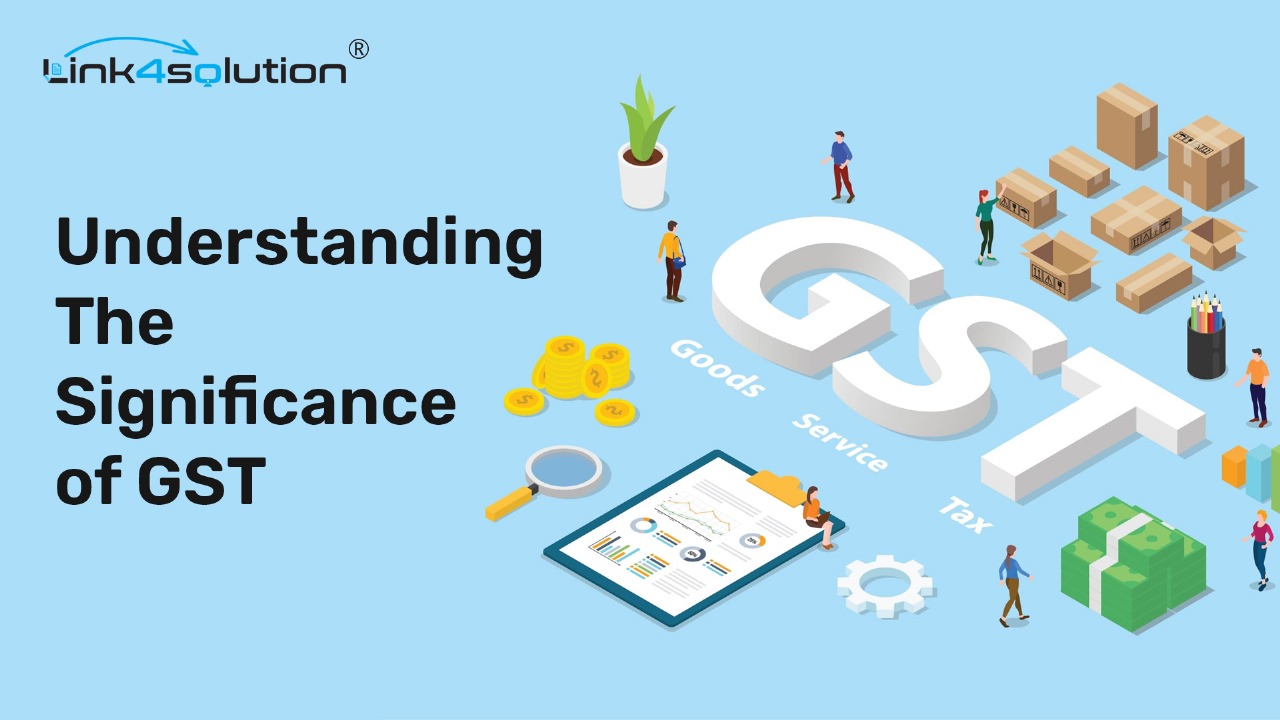In today’s fast-paced business world, handling finances and accounting has become a critical decision for business owners. One of the most common debates in the accounting world is virtual vs. traditional accounting. With modern technologies, businesses are increasingly turning to cloud-based accounting solutions and virtual accounting services, but is this the right choice for your business? Let’s dive into the comparison between traditional accounting and virtual accounting and explore the benefits of virtual accounting to help you make the best decision.
What is Virtual Accounting and Traditional Accounting?
Virtual Accounting
Virtual accounting is the process of managing accounting tasks remotely using digital tools, cloud-based software, and online communication platforms.
Key Features:
- Done remotely by accountants (often freelancers or virtual firms).
- Uses cloud-based software (e.g., QuickBooks Online, Xero, Zoho Books).
- Data is stored and accessed online.
- Real-time collaboration with clients.
- Cost-effective and time-saving.
- Ideal for startups, small businesses, and remote teams.
Example:
A business hires a virtual accountant who uses cloud software to manage payroll, expenses, and taxes without physically visiting the office.
Traditional Accounting
Traditional accounting involves in-person bookkeeping and accounting, typically done using physical records or on-site desktop software.
Key Features:
- Handled by an in-house accountant or local accounting firm.
- Often uses offline or manual methods (paper ledgers, desktop tools like Tally).
- Requires physical presence for meetings and data exchange.
- More common in older or less tech-savvy businesses.
- Slower updates and less real-time access.
Example:
A company maintains a physical ledger and works with a local accountant who visits the office monthly to update financial records.
Differences between Virtual and Traditional Accounting Systems
Traditional accounting, often referred to as in-house accounting, involves having a dedicated team of accountants working from a physical office location. This method has been the norm for decades, offering hands-on, personalized financial management for businesses. On the other hand, cloud accounting involves accessing accounting software and services over the Internet, often through platforms that offer remote accounting services and online accounting solutions.
So, how do these two compare in terms of functionality and benefits?
- Accessibility and Flexibility: One of the key advantages of virtual accounting services is that they allow you to access your financial data from anywhere at any time. This flexibility is essential for modern businesses, especially those with remote teams. In contrast, traditional accounting requires physical access to your accounting department or office.
- Cost Efficiency: Virtual accounting services often come with a lower cost because businesses don’t have to maintain a full in-house accounting team. This is especially beneficial for small businesses looking to save on overhead expenses. The cost comparison between virtual and traditional accounting clearly shows that cloud-based accounting solutions often lead to significant savings.
- Automation and Integration: Accounting automation tools are a game-changer in the virtual accounting world. They help streamline repetitive tasks such as data entry, invoice processing, and financial reporting, which can significantly reduce human error. This level of automation is often not found in traditional accounting systems, where tasks may need to be done manually.
Virtual Accounting Services: The New Age of Business Management
With the growing popularity of virtual bookkeeping for businesses, it’s clear that businesses are making the shift towards more efficient and scalable solutions. Virtual accounting services offer several benefits that traditional accounting may not provide:
- Scalability: Virtual accounting allows businesses to scale their operations without worrying about hiring additional in-house accountants. The remote accounting services offered by many platforms adapt as your business grows.
- Real-Time Data Access: Unlike traditional accounting, where reports are often available only after a specific period, cloud accounting offers real-time data, giving business owners a clearer and more accurate picture of their financial health at all times.
- Improved Collaboration: With virtual bookkeeping and cloud accounting solutions, your team can collaborate in real time. Whether you’re in the office, at home, or across the world, all team members have access to the same data, making communication and decision-making more efficient.
Virtual vs. In-house Accountants: Which Is Better?
When it comes to virtual vs. in-house accountants, the choice depends largely on the scale and nature of your business. Small businesses and startups are increasingly turning to virtual solutions because of their cost-effectiveness and flexibility. Larger enterprises with more complex accounting needs might still prefer an in-house team due to the personalized attention and specialized knowledge that can be provided by traditional CPAs.
Financial Management for Remote Teams
Managing finances for a remote team has never been easier. With virtual accounting services, business owners can manage finances regardless of where their team is located. Cloud-based solutions allow businesses to monitor financial data, track spending, and generate reports without the need for physical office space or in-person meetings.
The Future of Accounting: Trends in 2025
The world of accounting is rapidly evolving, and businesses must stay ahead of the curve. Accounting trends in 2025 will likely revolve around more sophisticated automation tools, the increasing reliance on cloud accounting, and the continued growth of virtual CPAs. Understanding these trends and embracing new technologies will be crucial for businesses looking to stay competitive in the marketplace.
Choosing the Right Accounting Method for Your Business
When deciding whether to go for virtual bookkeeping vs. traditional bookkeeping, consider the following factors:
How to Choose the Right Method for Your Business
Consider these factors when choosing between virtual and traditional accounting:
- Your business size and structure
- Budget and cost-efficiency goals
- Need for real-time financial data
- Preference for digital tools vs. face-to-face service
For many businesses, especially small businesses, cloud-based accounting solutions offer the scalability, flexibility, and cost savings they need. However, for larger, more established companies, a traditional accounting method may still be the best fit.
Why Choose Link4Solution for Your Virtual Accounting Services?
At Link4Solution, we provide trusted and professional virtual accounting and tax services for businesses of all sizes and industries. Whether you’re a startup or a growing company, we’re here to help you manage your finances smoothly and smartly.
1. Experts You Can Rely On
We have a team of experienced CAs, CPAs, and accountants who understand the specific financial needs of different businesses. With over 40 years of combined experience, we’re not just accountants — we’re your financial partners, helping you grow and plan for the future.
2 . Tailored Virtual CFO Services
Our Virtual CFO services are designed to help you make better financial decisions. We understand the details of trust accounting, compliance rules, and managing revenue. We support your business with expert guidance, strategic planning, and cost-effective solutions.
3. Trusted by Businesses Worldwide
We carefully choose skilled accountants who are well-educated and experienced. Our team is evaluated based on client feedback, work history, and trustworthiness. This ensures you always get the best support for your accounting needs.
4. You Keep All Original Documents
Unlike part-time accountants who take away your files, with Link4Solution, all your original documents stay safely at your office. You just upload scanned copies through our secure online platform for processing.
5. 24/7 Online Access to Reports
You don’t have to wait for an accountant to visit. Our platform gives you anytime access to your books and reports. You can view or download them anytime from your computer or phone, within the agreed timeline.
6. We Work With Your Preferred Accounting Software
No need to buy expensive software. Our team is trained in popular accounting tools like Tally, Marg, and more. We work with the software you’re comfortable with — saving you money and boosting accuracy.
7. Data Security is Our Priority
We use advanced technology and strict security systems to keep your data safe. Your information is 100% private and protected under strong non-disclosure policies.
8. Save Up to 50% on Accounting Costs
You don’t need to spend money on IT equipment or software licenses. With our virtual accounting services, you can cut your costs by 40–50%, while still getting top-quality service.
9. Double-checked for Accuracy
All accounts prepared by our team are reviewed by senior Chartered Accountants. This extra layer of checking means fewer mistakes and better reporting for your business.
Still Confused Between Virtual and Traditional Accounting? We Can Help
At Link4solution, we make accounting simple, smart, and stress-free — whether you prefer modern cloud solutions or traditional services.


Conclusion
The debate of virtual vs. traditional accounting is not one-size-fits-all. Both methods have their pros and cons, and the choice ultimately depends on your business’s needs. If you’re a small business or a company looking to streamline your accounting processes and save on costs, virtual accounting services may be the right choice for you.
At Link4Solution, we specialize in providing virtual accounting services that help businesses optimize their financial management. Our virtual CPAs and remote accounting solutions are designed to give you real-time insights and cost-effective, scalable accounting solutions. Reach out today to find out how we can help you streamline your accounting processes and drive business success
FAQs- Virtual vs. Traditional Accounting
1. What is the difference between virtual and traditional accounting?
Ans. Virtual accounting is a modern, cloud-based approach where accounting services are delivered remotely using online tools. Traditional accounting, on the other hand, involves in-person interactions with local accountants using offline systems. The primary difference lies in accessibility, flexibility, and use of technology.
2. What are the benefits of virtual accounting for small businesses?
Ans. Virtual accounting offers benefits like real-time data access, cost savings, scalability, and enhanced collaboration. It enables businesses to manage finances remotely, making it ideal for remote teams and startups looking for flexible accounting methods.
3. How does traditional accounting compare to cloud-based accounting solutions?
Ans. Traditional accounting relies on manual processes and desktop software, while cloud-based accounting solutions automate tasks, provide secure data backups, and allow anytime-anywhere access. Cloud platforms are more efficient and reduce human error.
4. What are the pros and cons of traditional accounting?
Ans. Pros: Personalized service, physical record-keeping, trusted local relationships.
Cons: Higher costs, less flexibility, slower processing, limited access outside business hours.
5. Is virtual bookkeeping better than traditional bookkeeping for growing businesses?
Ans. Yes, virtual bookkeeping is typically better for growing businesses due to automation, reduced costs, and real-time insights. It supports scalability and integrates easily with online financial tools, unlike traditional bookkeeping.
6. How do I choose between a virtual CPA and a traditional CPA?
Ans. Choose a virtual CPA if you value remote access, digital document sharing, and lower fees. Opt for a traditional CPA if you prefer face-to-face consultations and have complex local compliance needs.
7. What are the best accounting methods for small businesses in 2025?
Ans. In 2025, cloud-based and hybrid accounting methods are trending. Tools like QuickBooks Online, Xero, and Zoho Books offer automation, easy tax filing, and mobile access, making them ideal for small businesses.
8. How much does virtual accounting cost compared to traditional accounting?
Ans. Virtual accounting is usually 20-40% more affordable than traditional methods. You save on infrastructure, travel, and hourly rates, while still receiving expert financial support through remote accounting services.
9. Can remote accounting services support my financial management needs?
Ans. Absolutely. Remote accounting services offer full-spectrum support, including payroll, tax filing, invoicing, and financial planning. They’re especially beneficial for businesses with remote or hybrid teams.
10. What are the latest accounting trends in 2025 that I should be aware of?
Ans. Key accounting trends in 2025 include AI-powered accounting automation tools, cloud integration, data-driven decision-making, and the rise of virtual bookkeeping. Businesses are rapidly moving away from traditional systems toward digital transformation.




